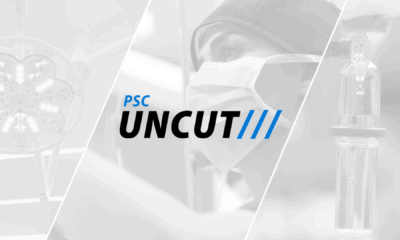Social media is here to stay. It is estimated that 2.65 billion people worldwide will use some form of social media to communicate this year and that number is expected to rise to over 3 billion by 2021. Furthermore, Instagram and Snapchat are the de facto forms of communication for anyone under 30 in the public sphere. In terms of plastic surgery, however, is social media a good thing or a bad thing?
Board certified plastic surgeons Dr. Douglas Steinbrech of New York City and Dr. Johnny Franco of Austin are two surgeons who are very active on social media. They discuss the pros and cons of social media for their practices and why they feel that, overall, social media is a good thing for both them and their patients.
Social Media Has Changed the Plastic Surgery Culture
“[Social media in plastic surgery] changed the whole culture for both physicians and patients” explains Dr. Franco. “I no longer have patients bringing me pictures of movie stars.” Now, patients bring in Instagram crushes. “I think its both good and bad,” Franco continues. It’s good because we all relate more to real people. They are more accessible and attainable than a genetically blessed movie star who works with the best in hair and makeup, typically photographed in perfect lighting. Te bad side of social media is that, oftentimes, patients forget that a lot of what they see on social media is fake. The photos may have been shot with a filter or manipulated with any number of new app features that smooth skin, even skin tones, etc.
Or, worse, it could be a situation where the photos or videos on a plastic surgeon’s feed aren’t actually his or her work. “As plastic surgeons, it’s our job to help guide our patients and be the leaders in information,” says Dr. Franco.
Be Your Own Detective
Dr. Steinbrech could not agree more. If you are a patient and you find someone who has a great Instagram, it’s up to you to be your own detective and do the research. There are a lot of surgeons on social media who aren’t even board certified, but who call themselves cosmetic surgeons. It can be really confusing. One of the simplest ways to protect yourself is to go to the American Board of Plastic Surgery (ABPS) website and search out the surgeon to see whether or not he or she is actually board certified.
The reason that board certification is important is that it is a pretty simple way to determine a surgeon’s actual experience. Board certified plastic surgeons have to pass a very rigorous set of tests. It takes skill, knowledge and experience, all of which translate to a better result for the patient.
Plastic Surgeon Should Be Frank About Expectations
One of the downsides of the selfie culture that we currently find ourselves living in is that it can create an environment of unrealistic expectations. Filters and computer software such as Photoshop can make even the worst photo look good. While it is important to gather your dream photos on Instagram, as it can help give your plastic surgeon a better idea of your desired outcome, it is equally important for your surgeon to be frank and say, “This picture isn’t real. Let’s figure out what we can really do here,” explains Dr. Franco. Any aesthetic procedure must work with your individual anatomy. This is why there is no one size fits all when it comes to plastic surgery. In fact, what worked for your brother or sister, for example, may not work for you.
Realistic Expectations = Happy Patient
It is really important for patients to have a realistic expectation when it comes their plastic surgery results. When you know what can or can not be accomplished with a given procedure, you are going to be happier with your outcome. This is where patient education comes in. Following surgeons who have great, realistic accounts can help. Both Dr. Steinbrech and Dr. Franco are very active on social media. If you look at their Instagram accounts, you’ll see that “some people still have wrinkles,” shares Franco. “Some people still have love handles because we are showing you what we can really do.”
Social Media Breeds Familiarity
Dr. Steinbrech likes using social media “to show a lot of really great things that are happening, great new techniques and patients can find us more easily by seeing what we are up to minute by minute.” The other nice thing about social media is that it breeds familiarity. When patients come in to see Dr. Franco for an initial consultation who’ve been following him on Instagram or Snapchat, it feels more like a second or third consult because the patient is up to speed on his work. “They also follow post op instructions better because they understand why we are asking them to do that,” he shares. So, while there is both good and bad when it comes to social media and plastic surgery, overall, “it’s an exciting frontier.”










Facebook
Twitter
Instagram
YouTube
RSS